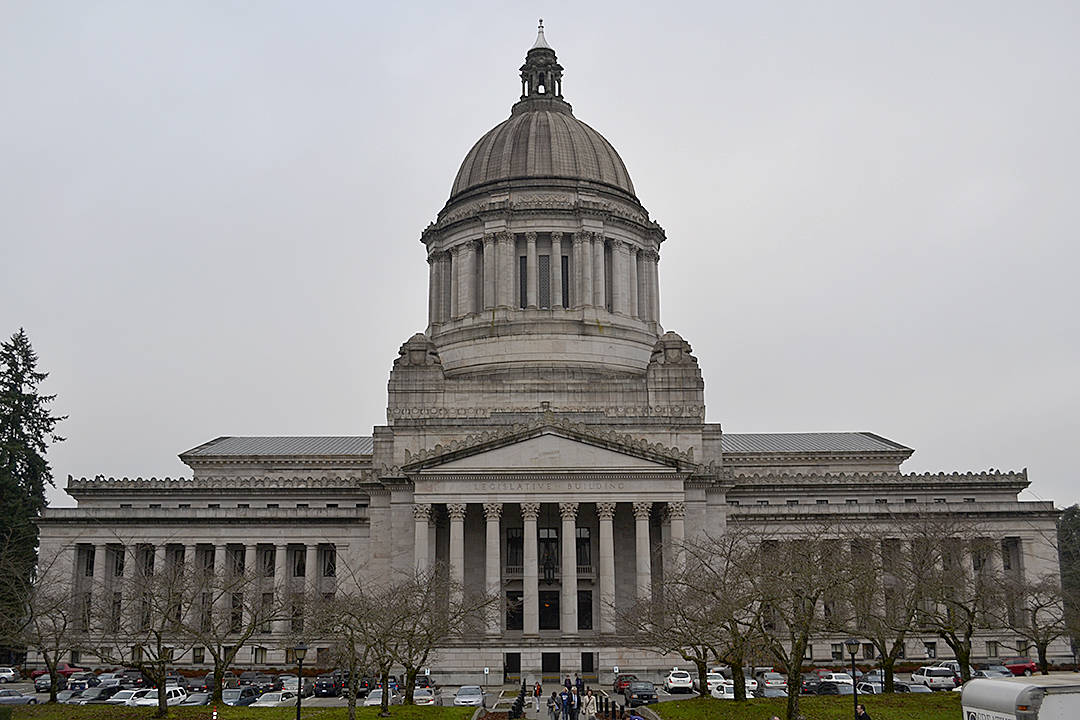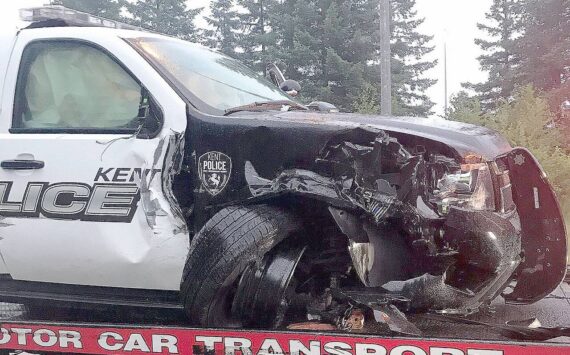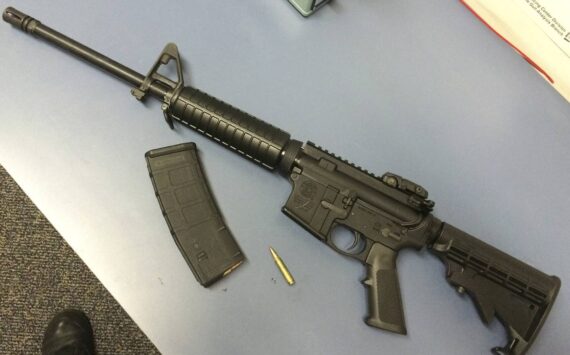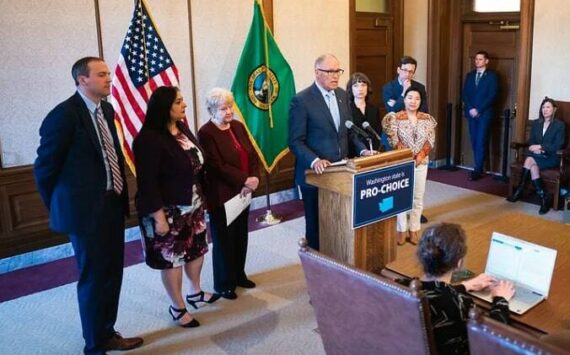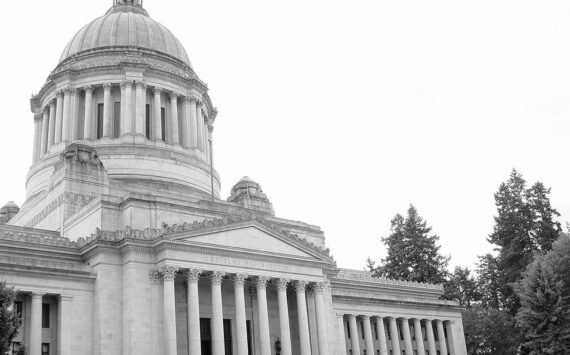If you come to the state Capitol and want to see lawmakers in action, there are a few rules to follow while sitting in the galleries overlooking the Senate and the House floors.
You can’t bring in food or drink. No signs are allowed. No waving, no whistling and no singing either.
Large backpacks are prohibited. So, too, are unattended children, apparently to deter parents considering it an affordable alternative to day care.
And, since 2015, openly carried firearms have been banned from these designated viewing areas. While you could no longer walk in with a rifle slung over your shoulder or a pistol holstered on your hip, you could pack a concealed weapon as long as you have a permit.
The Senate is going to need a new sign because Democratic Lt. Gov. Cyrus Habib on Monday banned all firearms from the Senate gallery during session. And, in a letter to the sergeant at arms, Habib asked that “particular emphasis should be placed on preventing assault weapons from being brought into the galleries.”
Initially, he wrote, steps to carry out the rule should include “prohibiting overcoats or large bags that could be used to conceal firearms into the galleries.” Habib is interested in eventually installing metal detectors at the entry doors “to ensure full enforcement of this policy.”
If this sounds remotely familiar it’s because state lawmakers traveled a similar path before and didn’t like how things turned out.
In 2004, state Rep. John Lovick, D-Mill Creek, introduced House Bill 3128 to bar all weapons from being brought into the Capitol.
As envisioned, if someone arrived with a gun — remember, Washington is an open-carry state so you can shoulder one in public — they would check it like a coat or be required to put it in a designated locked storage box. It was to be a total ban year-round for the entire building, including the House and Senate galleries.
The bill had 13 co-sponsors but, as I wrote at the time, the Democrat-controlled House Judiciary Committee snuffed out the proposal before the NRA even had a chance to shoot it down.
However, lawmakers still had concerns. After much wrangling, they agreed to make all visitors pass through an airport style security system of metal detectors and X-ray scanners before entering this sanctuary of state government. It cost $237,000 to lease the equipment and roughly $1 million to hire nearly three dozen full-time screeners.
It was set up as a one-year experiment. After the 2005 session, it went away without much resistance from anyone.
Fast forward to the present.
Habib’s order, issued hours before Democrats reclaimed majority control of the state Senate, foreshadows another round of debate on gun control among lawmakers in response to this year’s mass killings on the streets of Las Vegas and in a church in Texas.
It also means there will be three different policies governing the toting of guns inside the Capitol.
Habib’s order is limited to the gallery of the Senate during sessions.
The House continues to retain its rule allowing individuals to carry a concealed weapon into the gallery if they have a permit.
And in the rest of the building, as well as on the grounds outside, nothing’s changed. Anyone can bring an assault rifle into the Capitol then do the Hokey-Pokey and shake it all around. They can even dance with an Uzi in one hand and a Luger in the other outside the front doors of the Senate chamber.
Lovick said Tuesday he’s not planning to reintroduce his bill. Instead, the former state trooper and Snohomish County sheriff said he wants to chat with Habib, House Speaker Frank Chopp, D-Seattle, and other lawmakers on an approach “to make the campus more safe” that will succeed in the 2018 session.
“When it comes to safety,” he said, “we not only want to be safe, we want to feel safe.”
